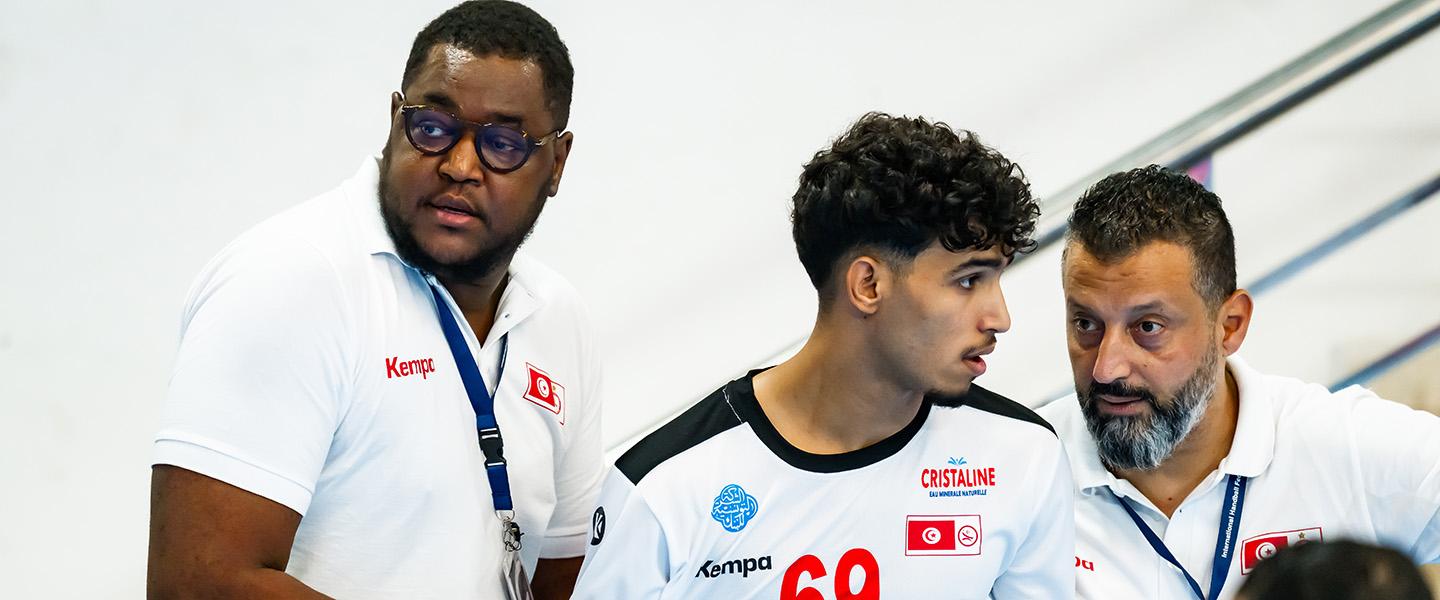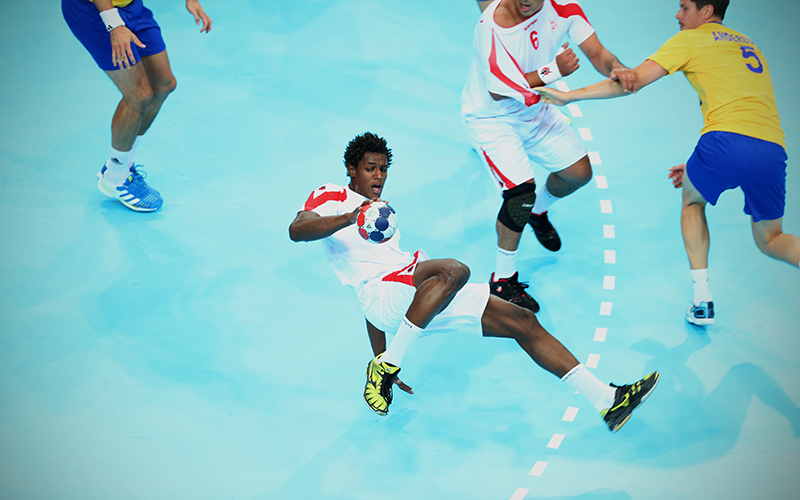Changing the mentality and imagining a new future for Tunisia: Jallouz's new challenge in handball
28 Oct. 2025

When Wael Jallouz emerged on the big stage at the 2012 IHF Men’s Club World Championship, featuring for Saudi side Mudhar, the 21-year-old left back was touted to be one of the best prospects in the world.
In that edition of the competition, he scored 35 goals for Mudhar, being the second best scorer, after fellow Tunisian back Amine Bannour, and was immediately eyed by the powerhouses of the handball world.
Naturally, after just one year, he moved to Europe, where his astonishing shot, his outstanding athleticism and the potential on display made him a fan favourite, with the “Zebra” fans nicknaming him “Willy”, which has stayed with Jallouz ever since.
After one year at Kiel, he moved to another powerhouse, FC Barcelona, where he won the IHF Men’s Club World Championship in 2014, chiming in with one goal in the final against Al Sadd.

However, as big Jallouz’s potential was, his career was derailed by injuries, with the left back trying to return to his previous form in loan stints at Füchse Berlin and C' Chartres Métropole Handball, before returning to Tunisia in 2020, where he played for AS Hammamet and Espérance Sportive de Tunis.
Nevertheless, Jallouz could never come back from his medical issues, including an eye infection and a bout of peritonitis, which seriously derailed his ambitions.
“I would really love to play, but my body does not allow me to anymore,” said Jallouz, when he announced his retirement from his playing career even before he turned 30 years old.
Yet the former left back could not stay away from handball and wanted to stay close to the court, and went into coaching, successfully securing his IHF C-Licence during the Coaching Course organised by the IHF in Hammamet, Tunisia, this summer.
And Jallouz kickstarted his coaching career from the bottom of the pyramid, now being the assistant coach for the Tunisia men’s Under-17 team, which is featuring at the 1st IHF Men’s Under-17 World Championship in Morocco.
“It changes a lot, it is very different to be a coach rather than as a player. As a coach, it's a bigger responsibility, it is more difficult. Also, with the young players, you have to give them the chance to work well and get to the top,” said Jallouz, after Tunisia’s 33:27 win against the Republic of Korea in the second matchday of the 2025 IHF Men’s Under-17 World Championship.
Jallouz’s challenge is broader, though, as he is part of a team which tries to bring Tunisia back to its former glory. The last time they won the CAHB African Men’s Handball Championship was in 2018. At the IHF Men’s World Championship, they made the semi-finals in 2005, when they hosted the competition, they have also finished 11th twice since then, in 2007 and 2013, but in the past two editions, they have ended up on the 25th place, failing to make the main round.

Therefore, improvement is needed and Jallouz thinks Tunisia have what it takes to make the further step, albeit with some changes.
“My goal is now to change the mentality of the players, during and outside of the competitions and change the game system. And to create good players who can reach a very high level,” says the former left back.
“In Europe, the mentality is different and our task is to transfer this mentality to our young players. It is difficult, because, sometimes, in Tunisia, in major competitions, we only look about who scores more. But in modern handball, it is about more than that. In modern handball, you need a game which has a more collective aspect. We need more passes, we need to create our chances. This is about the system of the team, the defence, the whole aspects,” says Jallouz.
Throughout his career, the Tunisian assistant coach has been playing under Alfreð Gíslason at THW Kiel and Xavier Pascual at FC Barcelona, two of the best masterminds the game produced over the last decades and has learnt plenty of them.
And now he wants to share more to the young Tunisia players, who are at their first major international competition.
“I had a very good time with Xavi Pascual and he inspires me a lot. I have learnt a lot from him,” adds Jallouz.
So far, Tunisia have conceded a loss, 30:38, against Qatar, and secured a win against the Republic of Korea, 33:27, with a match against Spain on the cards for the last encounter in the preliminary round, as their chances for progression to the semi-finals rely on a big win against the European powerhouse.
Nevertheless, Jallouz is still confident that this current batch of players, helped by others in Tunisia’s pipeline of talent, can write history in the future.
“In four or five years, we can really reach a good level,” concludes Tunisia’s assistant coach.

